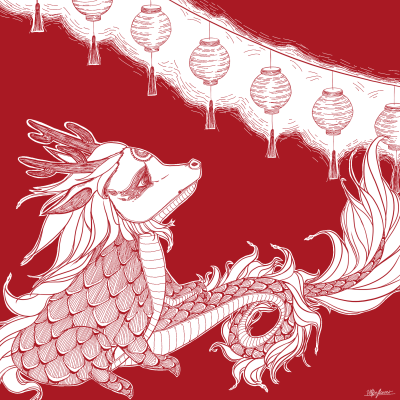By Expert by Experience Mary:
How does a first-generation Chinese immigrant who has lived in Britain for the majority of her life begin trying to talk about Chinese New Year?
I am told that it is a time for family, food and new beginnings - but I’ve never actually had much opportunity to celebrate the Spring Festival, as it is called in China.
I can count on one hand the number of red envelopes that I’ve received in my entire life, for example: traditionally, you would get one of these every year from pretty much every family member in the generations above you. My experience probably isn’t particularly unique - I imagine it’s very common amongst others like me, but I do have a few things I usually muse upon in the run-up to Lunar New Year.

Turning it down is usually not an option if you don’t want to start another fight, and whether or not you actually want to eat the fruit doesn’t really seem to be important (or at least, not to your parents). Mix that in with societal and cultural expectations for Chinese women to look a certain way, maintain a meek and conflict-averse persona (whether intentionally or not), or pay respects to your elders (something that’s expected regardless of your gender) - it’s tough to navigate, to say the least. It’s rarely as simple as accepting it or turning it down.
When living in a Western country, this feeling can be magnified even more: if you don’t have a strong sense of your identity as an individual from a blend of cultures or a different race, it can be easy to let other people’s perception of your identity influence you. East Asians are often represented in a very specific way in our media, and with the rise of K-pop and anime in pop culture, we might find ourselves susceptible to holding beliefs about what is a “correct” body image or personality for us regardless of whether that is what we want, let alone if it’s healthy or not. If your parents spent most of their lives growing up in China, there’s an even wider mix of messages being thrown at you about how you should or shouldn’t be. There’s a certain pressure to live up to something that you perceive to be relevant to you, even if you don’t personally connect with it.
All of these issues can be intensified during the time around Lunar New Year.
I guess in a very roundabout way, I’m simply here to say: you’re not alone. Your family might be half a world away, and maybe the whole food-and-love thing brings you nothing except anxiety.
But I think the true message and spirit of the festival is this: there’s always an opportunity for new beginnings.

